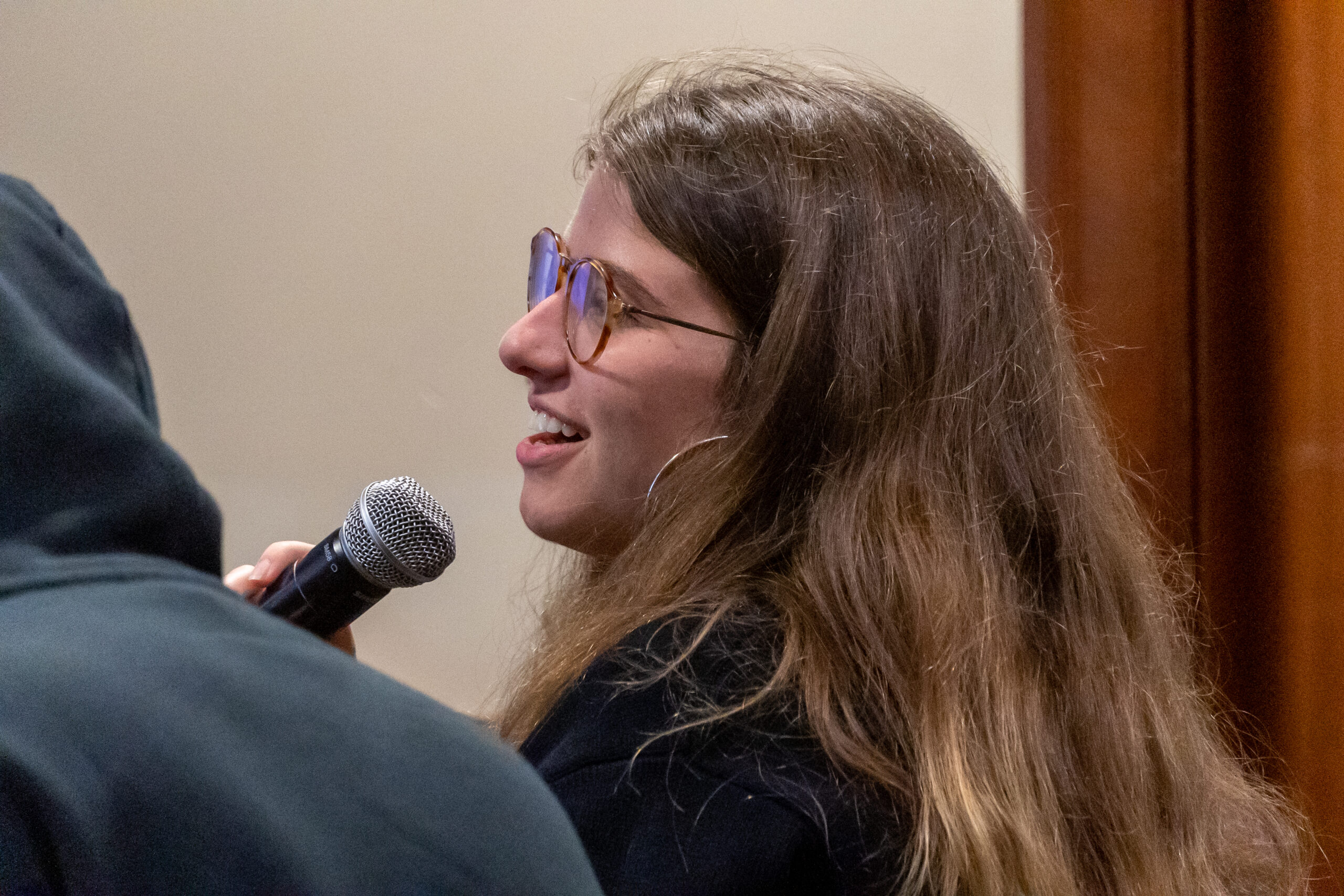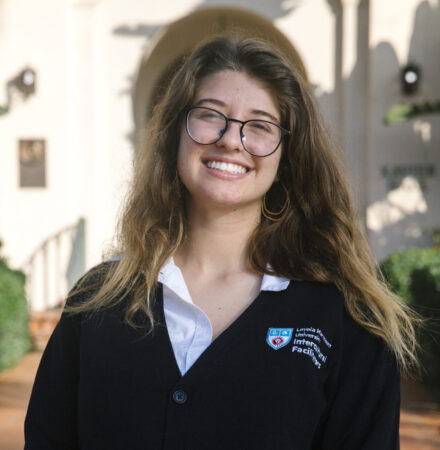
 As an international student from Brazil, Julia Novis ’25 has expanded her global experiences through immersive education by serving as a student manager in LMU’s Global House, which is right outside the gates of the campus, and joining a global immersion trip with her class from the LMU Bellarmine College of Liberal Arts. These experiences combined have created a powerful globally connected experience providing Novis with the chance to find and embrace community in each of these spaces.
As an international student from Brazil, Julia Novis ’25 has expanded her global experiences through immersive education by serving as a student manager in LMU’s Global House, which is right outside the gates of the campus, and joining a global immersion trip with her class from the LMU Bellarmine College of Liberal Arts. These experiences combined have created a powerful globally connected experience providing Novis with the chance to find and embrace community in each of these spaces.
Leaving a life in Brazil to pursue an education in psychology in the U.S. was not something she thought she would do; she originally wanted to pursue music. As she began to research institutions to attend, she found herself drawn to LMU and felt like the school really spoke to interests. “It feels like something just pushed me to be here and it honestly felt kind of random, no one from my school came here, but it has felt like destiny to find this place,” said Novis. “Some of the best parts of my experience here have been finding the Brazilian community here at LMU. I have learned to have and give a lot of grace by learning and experiencing a different society and culture. It has helped me to have more of an open mind, become more self-aware, and grow.”
Some of that growth has been around living and serving as a student manager in LMU’s Global House community. “I originally wanted to live in the Global House because I didn’t have a car here on campus but I wanted to try to live off campus and still have easy ways to get involved with the campus community,” said Novis. “I also wanted to live in a community where I could grow, not necessarily living with my closest friends. The Global House has allowed me to have both of those things and is a small community, seven people living in the U.S. but then we have a couple people who are international and have been in the U.S. for a lot of years.”
As a community the house members connect over monthly meals and attend on-campus cultural events to expand their knowledge as global citizens during their time at LMU. “During the monthly dinners we go out together and shop for the meals and we have been attending each of the cultural events all together as a group,” said Novis. “The bonds we have created over homework or meals have really helped us live together and be a small community in this house. As a house manager, the experience is helping me to grow and learn to help be a bridge for what is happening in the house and build my communication skills. Together as a group we attended two cultural events in the library and a film screening. My advice to anyone who wants to live in the house would be to not be afraid, living in this tight knit community is about sharing both the space and each other’s cultures. From communication to learning to share, each of these things have helped me grow as an individual and growth is good for you in general.”
One of the ways Novis has also expanded her global education was last spring when she took the “African and Black Psychology” course through BCLA to Ghana last May. The spring semester course taught by Cheryl Grills, Ph.D., and Deanna Cooke, Ph.D., challenges students to critically analyze their current understanding of Africa and its people, their perception of the value of African culture and the relevance of the paradigm of Western psychology. Students were exposed to indigenous African knowledge in philosophy, psychology, medicine, spirituality, and history. These frames were used to help interrogate how Black people globally are portrayed – often negatively – how they are erased from the discourse in these disciplines, and how an African-centered perspective counters the long-standing and dominant narrative of Black inferiority. At the end of the course, the students and professors all traveled to Ghana to experience the community and these ideas first-hand.
Novis describes this immersion trip as life changing, especially after traveling to other countries, the coursework and preparation for the experience powerful and draw some connection to her Brazilian roots. “During the course, we talked a lot about how Western culture has limited our experiences and our knowledge as a society on things like psychology,” said Novis. “We don’t always connect the things we are learning and what we experience in culture together. As soon as we landed in Ghana, you could feel the heat and humidity, and I really started to feel like I was home in Brazil. Everything is so colorful in Ghana and the community was so welcoming, it’s one of the places in the world where I have felt the most welcome. For me the experience was grounded in what we learned about and from the community in Ghana, known as “ubuntu,” which translates to ‘I am because we are’ and is about the humanity we have towards one another. This experience was important to me because it helped expand my mind and open my heart and light a path for so many experiences. Thank you so much to Dr. Grills and Dr. Cooke for making this experience possible, I am forever grateful.”
Novis also serves with Intercultural Facilitators, a group of students who are highly developed in the principles of facilitations and help facilitate dialogue between students in critical cultural conversations. As part of their training, each IF has to write and be able to share their story of self as a way to open the dialogue and be vulnerable with students to help them feel comfortable to engage in the conversation. After the immersion experience in Ghana, Novis was so moved by the experience that she changed her story of self. “When I was writing it down and creating it, you have to go back to your childhood with the tools you have now, you reflect on your past experiences and how each of those experiences shaped what you are doing now and why you are here.”



